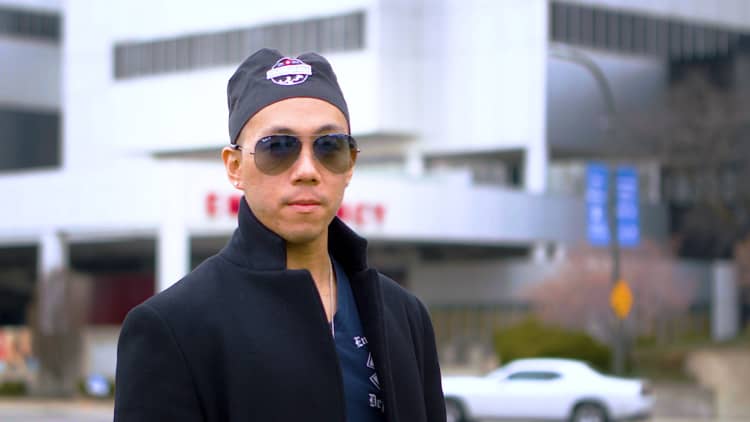More than one in five workers are currently on unemployment benefits or are waiting to get on, according to the Economic Policy Institute, as the U.S. economy continues to be ravaged by the coronavirus pandemic. Currently, those who are unemployed qualify for their standard state benefit and an additional $600 per week from the federal government. But without action from Congress, that extra weekly benefit expires July 31, even as over 19 million people in the U.S. remain unemployed.
Critics of expanding unemployment insurance (UI), and especially extending the extra $600 in federal aid, say that the payments discourage people from finding new work, especially because many low-wage workers have actually received more money in unemployment payments over the past few weeks than they would have in their normal paycheck.
But new research from the Chicago Federal Reserve throws cold water on that argument. The report finds that those who have exhausted their benefits are actually less likely to search for work than those still receiving them. In fact, once benefits run out, "their search effort drops precipitously."
The researchers measured the number of hours in a week people spent searching for work and the number of job applications they sent in the past month. The researchers found that "those currently collecting benefits search more than twice as intensely as those who have exhausted their benefits."
This dynamic happens for many reasons, Jason Faberman, senior economist at the Chicago Fed and one of the authors of the report, tells CNBC Make It via email. For one, some of the workers who exhaust their benefits "are fundamentally different than those who find a job before exhausting their benefits," i.e., those who find a job may be more highly skilled. But second, Faberman says, a loss of confidence plays a major role.
"The longer people are unemployed, the less they tend to search, and the exhaustion of UI benefits may cause a jump in just how discouraged people are about finding work, leading them to exert less effort on it," he says, noting that recent research from the French labor market found a similar dynamic.
While the $600 in federal UI runs out at the end of July, other components of the enhanced unemployment benefits put in place by the CARES Act will remain in effect through the end of the year. People in the U.S. will still qualify for 39 weeks of unemployment, and gig workers, contractors and self-employed can still collect their standard benefits.
The Fed's study also found that people who have exhausted their benefits are more likely to settle for lower-paying work than they had before they lost their jobs compared to those who are still collecting benefits, likely just to have some income. That suggests, the researchers write, that "UI benefit exhaustion may have detrimental effects on employment outcomes."
"Individuals collecting benefits tend to receive better job offers than those who are not collecting benefits," write the researchers.
A second analysis released this week by a team of researchers from the University of Chicago and the University of California, Berkeley at the Brookings Institute also found that the enhanced benefits have not necessarily stunted economic recovery.
https://twitter.com/benzipperer/status/1275902238649733121
Looking at data from government surveys and daily work records compiled by a private firm, the researchers found "no evidence so far in support of the view that high UI replacement rates drove job losses or slowed rehiring substantially."
While the researchers note that the U.S. is still in the very early stages of the Covid-19 recession and much "remains to be written" about any recovery, states that received more Paycheck Protection Program loans for small businesses and had more generous unemployment insurance benefits "had milder declines and faster recoveries" so far.
"It now appears that the period of economic weakness will last much longer, and that additional supports will be needed," the researchers write.
Don't miss:
- Millions of Americans will fall off an 'income cliff' when extra $600 in unemployment benefits ends next month
- The extra $600 in weekly unemployment benefits runs out at the end of July—here's what you need to know
- When enhanced unemployment insurance, eviction bans and other coronavirus financial protections end
Check out: The best credit cards of 2020 could earn you over $1,000 in 5 years



